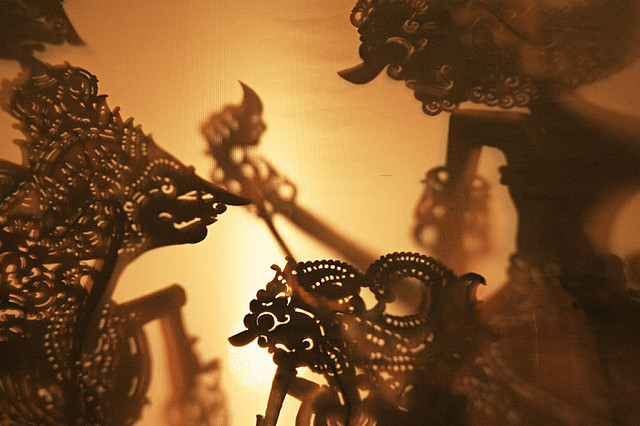 It appears that, in the end, nothing could have saved Andrew Chan and Myuran Sukumaran—and, incidentally, six other drug convicts—who were executed by firing squad on the Indonesian prison island of Nusakambangan early yesterday morning.
It appears that, in the end, nothing could have saved Andrew Chan and Myuran Sukumaran—and, incidentally, six other drug convicts—who were executed by firing squad on the Indonesian prison island of Nusakambangan early yesterday morning.
But the temporary stay of execution for Filipina drug courier Mary Jane Veloso may say more about President Joko Widodo—and where he’s coming from—than anything else in this whole unhappy saga.
Veloso is a poorly-educated maid, the one class of person bound to attract the sympathy of even Widodo, who has made the welfare of Indonesia’s domestic workers—many from his own Javanese hinterland—a central pillar of his foreign policy.
His decision to proceed with the executions was made in his first month in office and appears to have been his alone. Widodo’s chief of staff Luhut Pandjaitan says he was never consulted on the issue.
Some analysts believe the president was anxious to show he wasn’t a prevaricator like his predecessor, Susilo Bambang Yudhoyono. Later in his presidency, SBY claimed an opposition to the death penalty but never took the next step.
Yudhoyono allowed 15 executions in the four years after he took office in 2004, including two Nigerians for drug trafficking. Then followed a four-year moratorium before a Nigerian, a Vietnamese and a Pakistani paid the ultimate price for the same offence, along with three murderers.
And in 2014 there were none. Compare that to Widodo, whose mild-mannered Attorney General, Muhammad Prasetyo, declared on the eve of this week’s executions: ‘Don’t force us to cancel or postpone the executions. If we do, we will be perceived as weak.’
More importantly, the president would also be perceived as giving in to foreigners—in this case, Australian leaders who know better than anyone that megaphone diplomacy doesn’t work with Jakarta, but nonetheless have to show they’re trying to save their citizens.
When Prime Minister Tony Abbott perhaps unwisely raised the issue of Australia’s help in the devastating 2004 Aceh tsunami disaster as a reason for Widodo halting the executions, the look of indignation and anger on Pandjaitan’s face was palpable.
Like it or not, Indonesians hate being pressured; countries that do so find they have precious little leverage to call on when the nation’s nationalist hackles have been raised above a certain level.
President Suharto demonstrated that adequately enough, first with the Australia and its media in the mid-1980s, and then with the Dutch and the Americans in the 1990s over the East Timor massacre and Indonesia’s poor human rights record.
More recent is the case of marijuana smuggler Schapelle Corby, who should have received a five-year sentence, but got 20 years instead because the judges were clearly unhappy with the Australian media’s claims that she didn’t get a fair trial.
Yesterday’s execution brings the number of foreigners who have died on Widodo’s watch to 14, with as many as 14 more slated to follow in their footsteps this year alone.
Why is Widodo trying to look so tough? Some critics suggest he’s trying to make up for his failure to protect the Anti-Corruption Commission (KPK) from an all-out assault by police and politicians; it has seen the president savaged in the polls over recent months.
Others say it’s easier to blame foreigners for drug trafficking than to address the more difficult tasks of going after corrupt policemen and big-time Indonesian dealers responsible for starting and sustaining the drug ‘emergency’ Widodo likes to talk about.
Too many people have also been seduced into thinking this walkabout president is what they wanted him to be: a knight on a white horse, spreading reform and change and good cheer. As they are discovering, he’s not like that at all.
A harder side of Widodo is now in evidence, and so is the realisation that someone who was born poor and spent most of his 53 years in central Java hasn’t been exposed to the moral debate over the death penalty that other leaders have been.
Many if not most educated Indonesians abhor the death penalty; one described it to me as ‘sadistic and barbaric’. But the general population—easily influenced at the best of times—accepts it without much thought and would like nothing better than to extend it to corruptors.
Religion does play a role in this mentality. After all, even with Indonesia missing from this year’s list, 13 Islamic nations led by Egypt, Pakistan and Bangladesh were among the 25 countries that had the highest number of state-sanctioned executions.
Indonesian Muslims say the fact that the death penalty is applied for serious crimes in Islamic law only reinforces the principle of an eye-for-eye entrenched in the Indonesian psyche, exacerbated as it is by social injustice and a weak rule of law that encourages extrajudicial killings.
Indonesian writer and philosopher Goenawan Mohamad (whose father was executed by the Dutch) points to how the country’s history of violence forms the way its people think about death. As he wrote in a recent column: ‘We need a history that is more peaceful, a history which enforces justice because justice is not easy to enforce.’
Indonesians aren’t given to introspection but if the diplomatic storm over the eight executions achieves anything, it may be to start a debate within the political elite over the whole issue.

